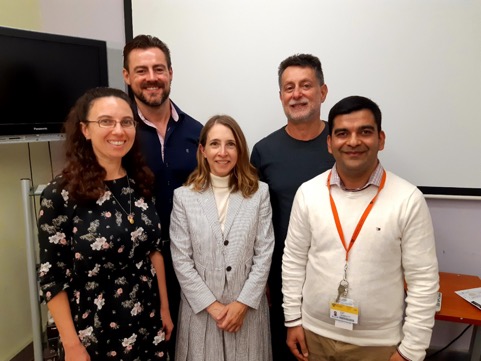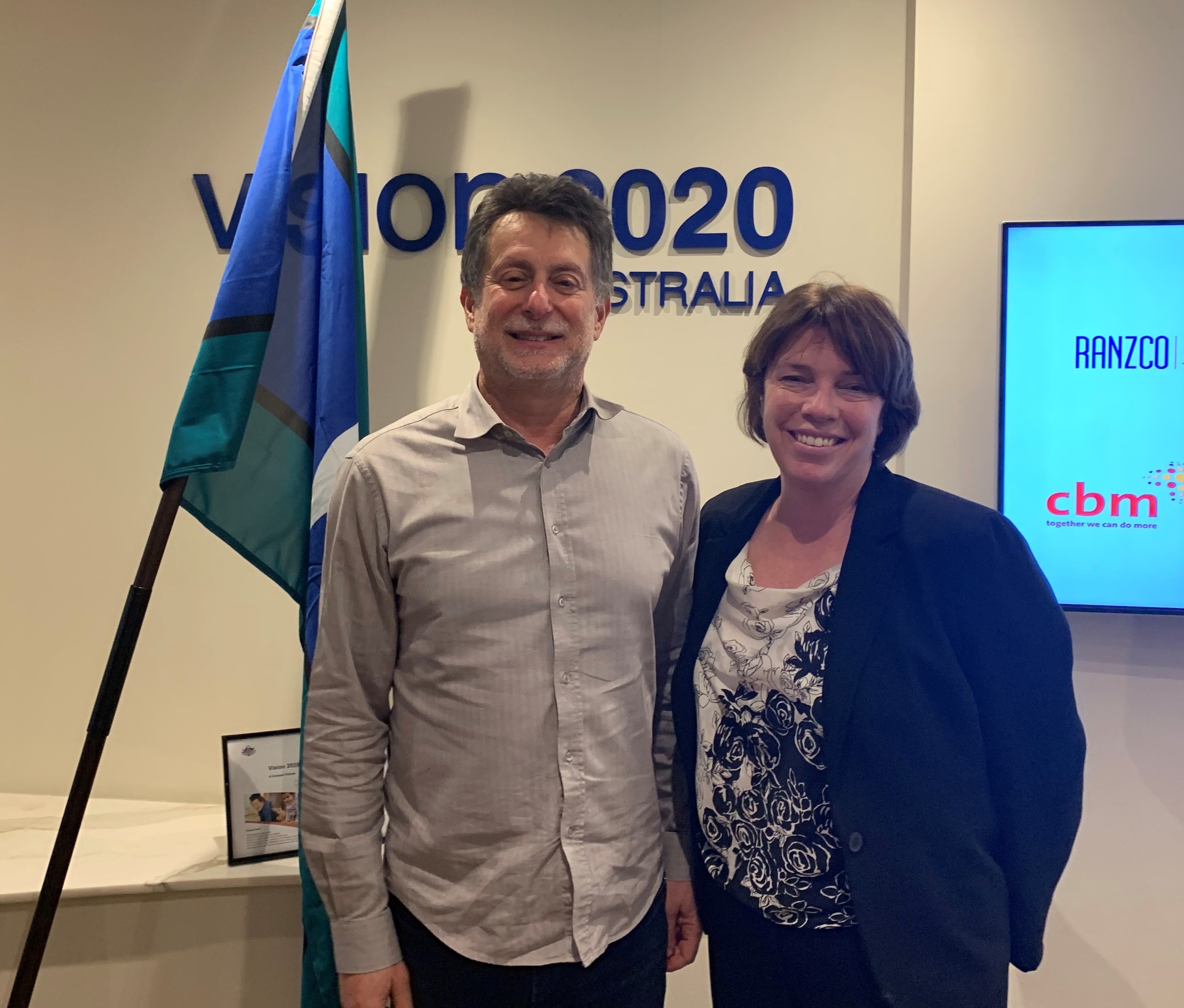Subsidies & Assistance

The rising cost of treatments – and especially contact lenses – is preventing many patients from receiving the specialist care and vision correction they require.
Keratoconus Australia has compiled a list of Federal and State based schemes and clinics which provide subsidies to people with low incomes, students, health and pensioner cards who require visual aids.
We note that fitting contact lenses on moderate to severe keratoconus is a specialist-only area. While these clinics can provide low cost services, they may not be staffed by specialist contact lens fitters for keratoconus.
A poorly fitted contact lens can do further damage to a thinning keratoconic cornea, causing scarring and possibly leading to a premature corneal transplant.
Please ensure you ask for an optometrist at these clinics with keratoconus training and experience.
We have also included a list of state-based patient travel assistance schemes which provide funding for patients requiring treatment outside of their local areas. These can assist patients to travel to capital cities where keratoconus specialists are more easily found.
The lists may not be complete and we would appreciate members contacting us with any information that could assist people with keratoconus obtain lower cost specialist treatments.
You can always ask your eye-carer about bulk billing and deferred payment plans if you are in financial difficulty.
Vision Australia can also provide advice and assistance in accessing these schemes.

Keraclub 2019 – Sydney 24 October 2019

KeraClub 2019 will be held at the Claffy Theatre at the Save Sight Institute, Macquarie St, Sydney on October 24 at 5.30pm. Make sure you have the date in your diary.

This year, we wish to focus on experiences of contact lens wearers as a Keratoconus patient. There are many situations we find ourselves in: travelling, swimming, flying, para-sailing, driving, playing contact sports, working in dusty and air conditioned environments, raising young children.
How have you coped with different situations?
Are you willing to share your stories?
Please could you contact Michelle Urquhart on urquhart4strings@gmail.com if you are interested in being a guest speaker at this support meeting.
KeraClub is a joint initiative between Keratoconus Australia and the Save Sight Institute. ![]()
Save Sight Keratoconus Registry Update

Sight Keratoconus Registry Committee focuses on patient outcomes
The advisory committee of the Save Sight Keratoconus Registry (SSKR) met on the 20th May 2019. The SSKR is part of the Fight Corneal Blindness! Project. Members including Mr Larry Kornhauser from Keratoconus Australia, Dr Laura Downie and A/Prof Gregory Harper from the University of Melbourne, and representatives from the Therapeutic Goods Administration and Save Sight Registries team, focussed on ensuring the registry met patient needs during the meeting.
Professor Stephanie Watson, Chief Investigator for the SSKR provided an update on the registry. The SSKR is a growing multinational database tool that enables eye-carers to track the outcomes of patients with keratoconus, including patient reported outcomes. It is a world first, as it collects data from everyday practice to learn more about keratoconus and improve its treatment.
Currently, the SSKR has 68 users (doctors) from 65 sites in Australia, New Zealand, Spain, Italy, France and Switzerland. The registry consists of data from more than 20,000 visits for 4,200 eyes of 2,300 patients. It is an extremely useful tool for monitoring patient outcomes, clinical events, adverse events, and for conducting research and educating patients. To find out more visit https://www.keratoconus.org.au/treatments/australian-crosslinking-registry/

Talented researcher joins Save Sight Registry team
Dr Himal Kandel joined the SSKR as a Kornhauser Research associate in January 2019. His full time-position for three years is funded by the Kornhauser fellowship, a philanthropic donation from Mr Larry Kornhauser – the president of the Keratoconus Australia. Dr Kandel has completed his PhD from Flinders University, Adelaide on measuring quality-of-life impact of eye diseases. He has received several awards including the Vice-Chancellor’s Prize for Doctoral Thesis Excellence, the South Australian International Student of the Year, and the South Australian Academic Excellence Award – Postgraduate research category. Dr Kandel has published his work in several scientific journals and presented at several national and international conferences, including the Association for Research in Vision and Ophthalmology (ARVO) annual meetings. He has been selected to present his work on quality-of-life impact of keratoconus at the 10th EUCornea Congress, Paris in September 2019.
Research updates: What is new in keratoconus?
Dr Alex Ferdi, PhD student, looked through 4,000 studies and combined the data from 41 of these to find out about the natural course of keratoconus. Children under 17 years old and people with steeply shaped eyes were at higher risk of their disease worsening over a year.
“It was surprising how little modern research has been done investigating what happens to keratoconus over a lifetime” said Dr. Ferdi. “Yet knowing this is crucial in evaluating if patients need procedures such as corneal cross-linking”.
Dr Ferdi also found that Middle Eastern patients are at higher risk of progression than Europeans or East Asians.
Dr. Ferdi advised ophthalmologists to keep in mind age, corneal curvature, and background when evaluating progression risk, and the risks and benefits of cross-linking.

However, much remains unknown on what happens to patients with keratoconus in the long term, what treatments they need, how they respond to treatment, and the benefit to the patient of treatment. The answer to these questions can come from ‘real world data’. That is information from medical practice that has in the past not been collected or analysed. With the SSKR we are now able to learn from everyday practice. Patients should ask their optometrist and/or ophthalmologist register them on the SSKR (https://frb-research.org).
“Our study has demonstrated the urgent need to log more data from people with keratoconus, so we can better understand not only the natural history, but also how people respond after cross-linking” Dr Ferdi said.
First prize was awarded to Dr Ferdi at the Annual Save Sight Institute, The University of Sydney Higher Degree Research Symposium for his presentation on this work.
The links to the recently published papers from the SSKR team are provided here: Natural history of keratoconus, Vision related quality of life in keratoconus, Registries in Ophthalmology, and Outcomes of cross-linking.
Optometry joins the Save Sight Keratoconus Registry
One of the most exciting news about the SSKR is that it will soon be available to optometrists. This will enable optometrists to track the outcomes of keratoconus patients collecting more information regarding the optometric care including the contact lens-related parameters. The optometrists and ophthalmologists will be able to refer patient data to each through the registry system.



Keratoconus Australia has a new Facebook page where we are posting all the news about the Association, its partners, the latest research in keratoconus from around the world and what’s happening in the local keratoconus community.
Please spread the word

Vision 2020 Australia meeting
Keratoconus Australia President, Larry Kornhauser, met with the CEO of Vision 2020 Australia Judith Abbott and Policy and Advocacy Advisor Che Stockley in mid-July to discuss the challenges faced by kerataconus patients in accessing affordable, suitable treatments for the condition.
Mr Kornhauser explained to Ms Abbott that many people with keratoconus did not have the means to pay for the relevant treatments which could otherwise restore their vision. He highlighted the recent increases in the cost of optometric services, notably the spiralling cost of fitting and purchasing specialty contact lenses which are critical to restore vision for most keratoconus patients. Some patients had even dropped out of education programs and lost their jobs because they cannot afford pricey contact lenses, he noted.
Ms Abbott agreed to look into the matter and consult with the optometrist groups to see what could be done to alleviate the problem.
Vision 2020 Australia is the peak body covering vision related bodies and organisations within Australia. It works with the Australian government to develop effective policy and strategy based on areas of need identified by its members. Kerataconus Australia is one of Vision 2020 Australia’s smallest members and we thank Ms Abbott for providing us the opportunity to express our views to the issues facing the keratoconus community.


The Association will hold its Annual General Meeting 2019 on Tuesday September 10 at 6 pm. The meeting will be held in Melbourne at 1302, 9 Yarra St, South Yarra VIC 3141.
A notice of meeting will be sent to all members in the near future. Please consider volunteering for the Committee Management to assist us in improving life for people with keratoconus and their families.

